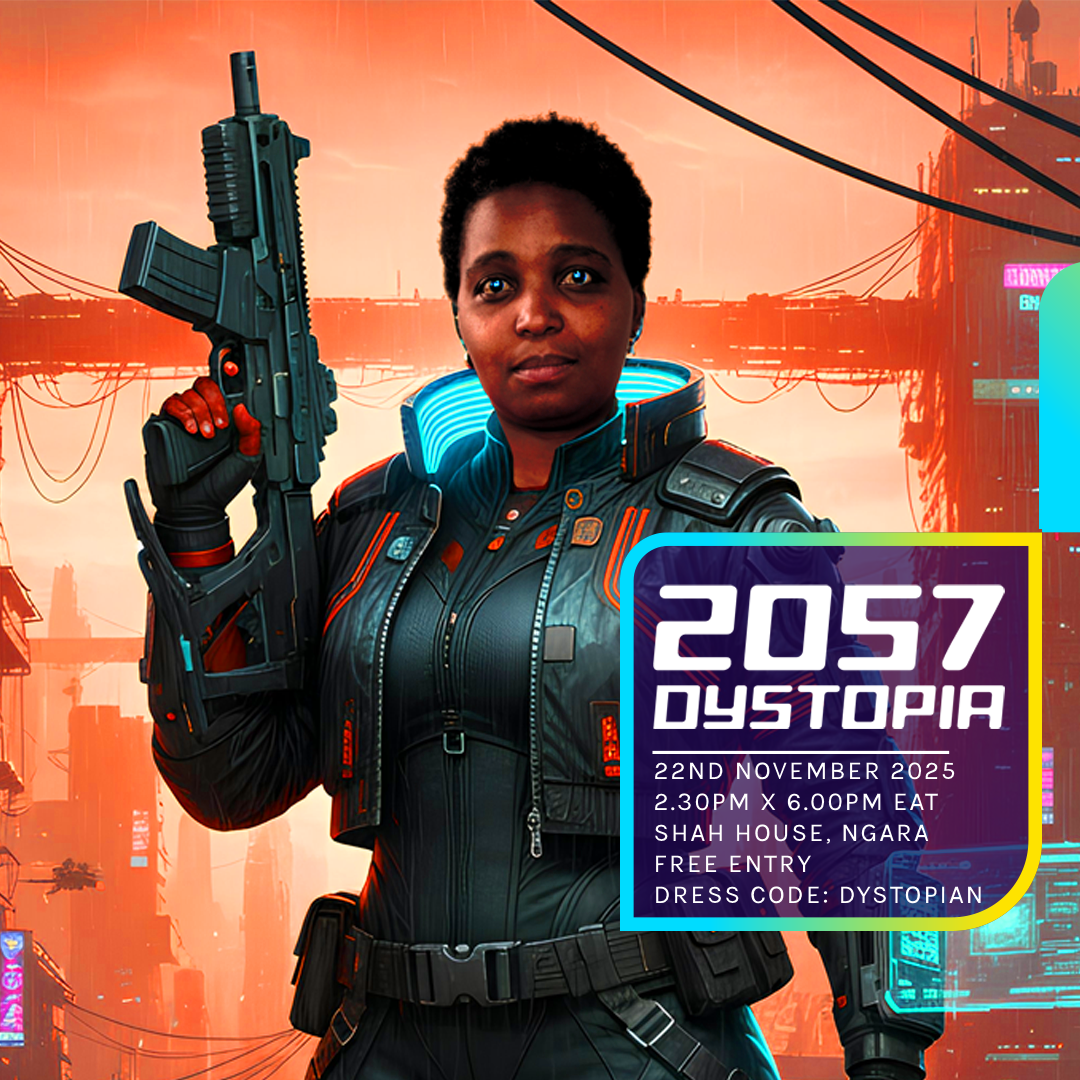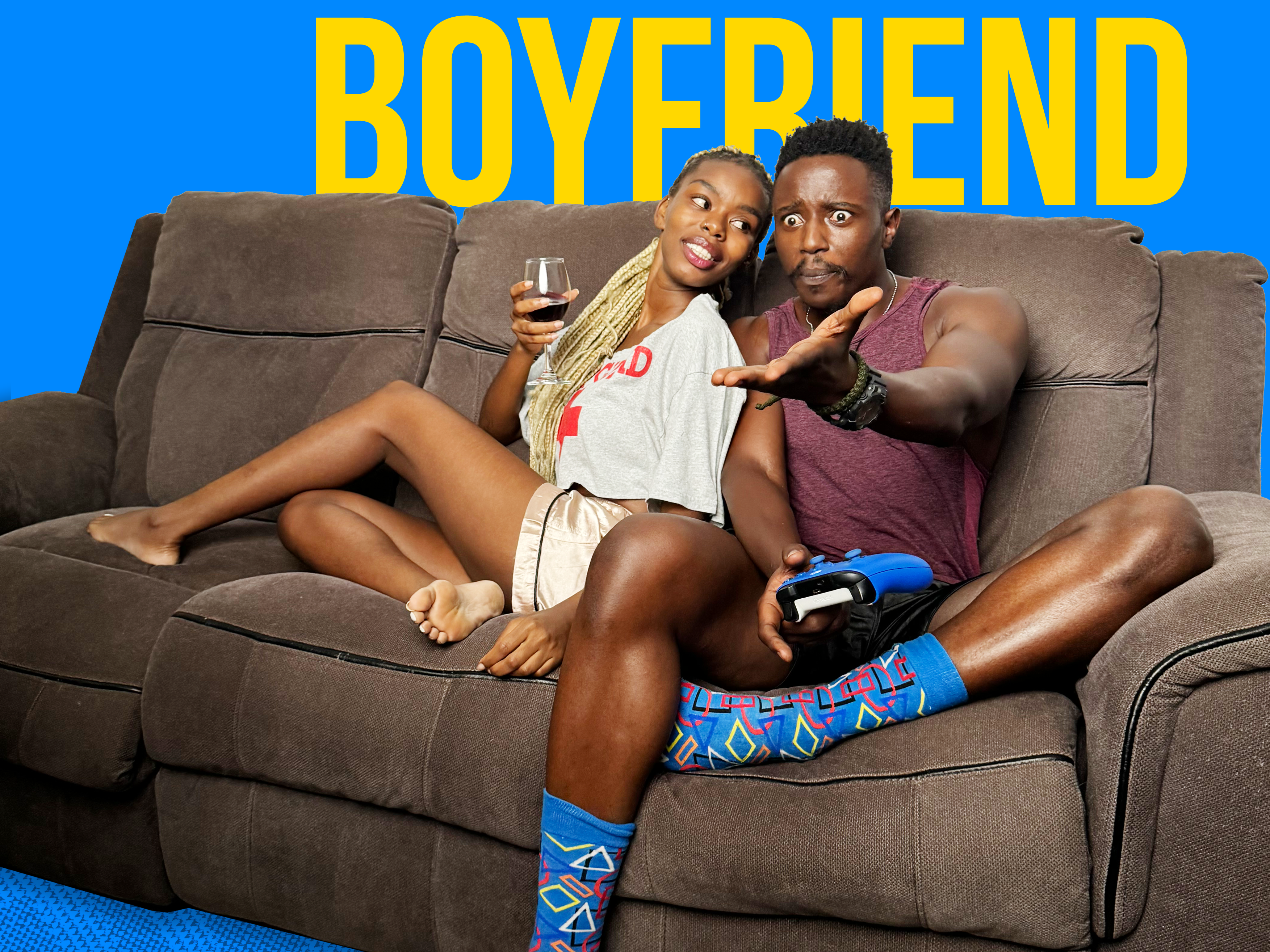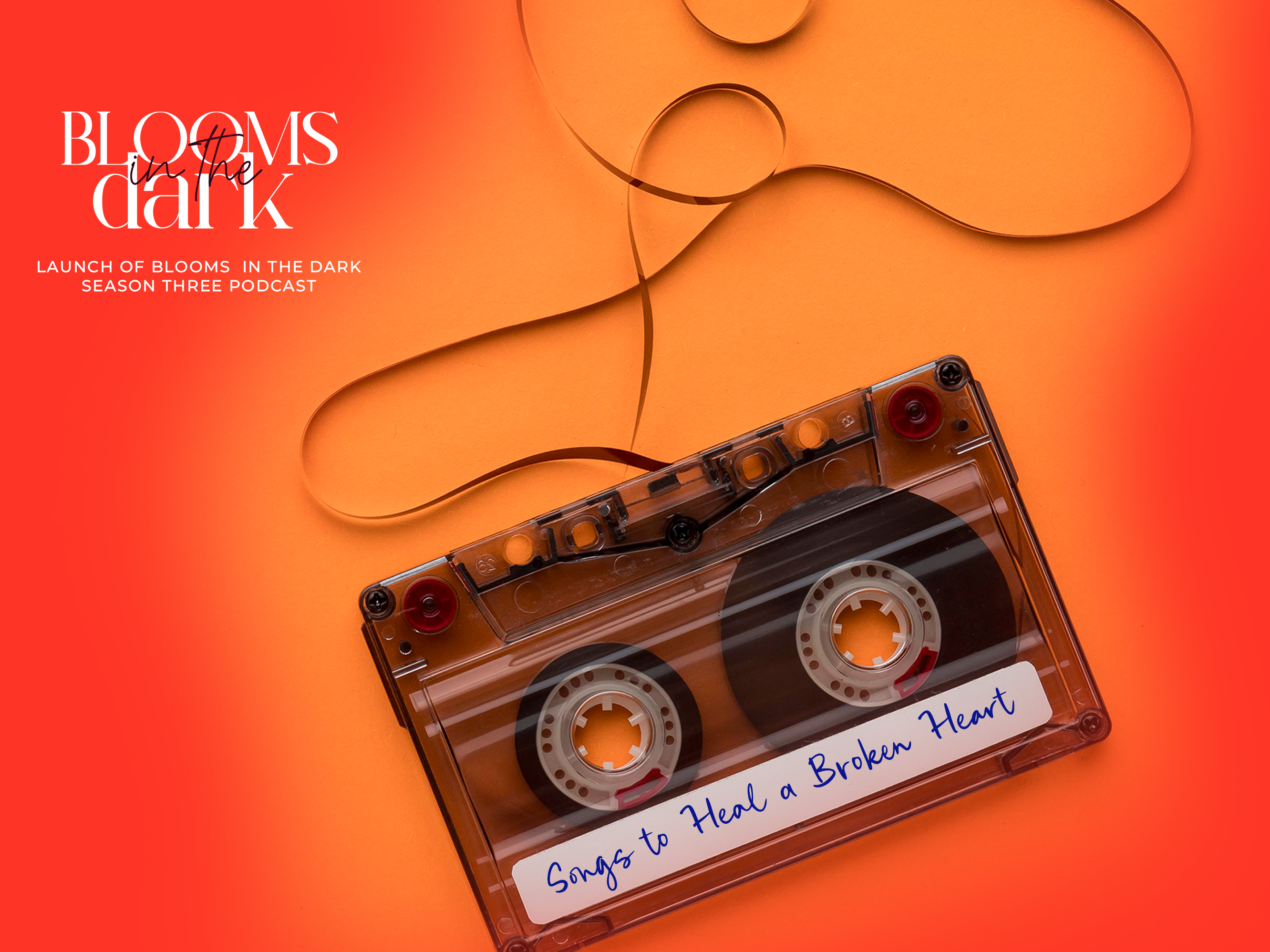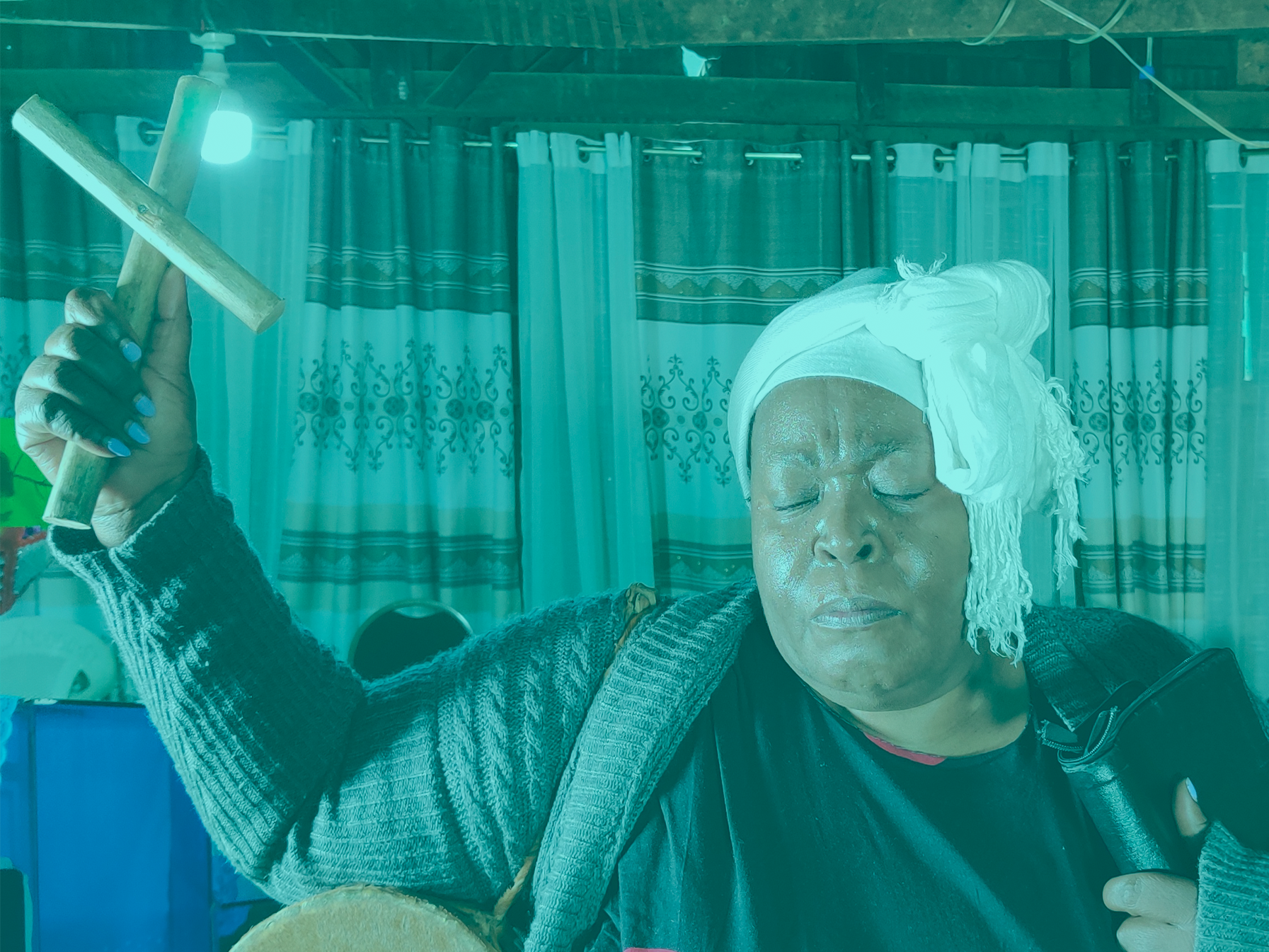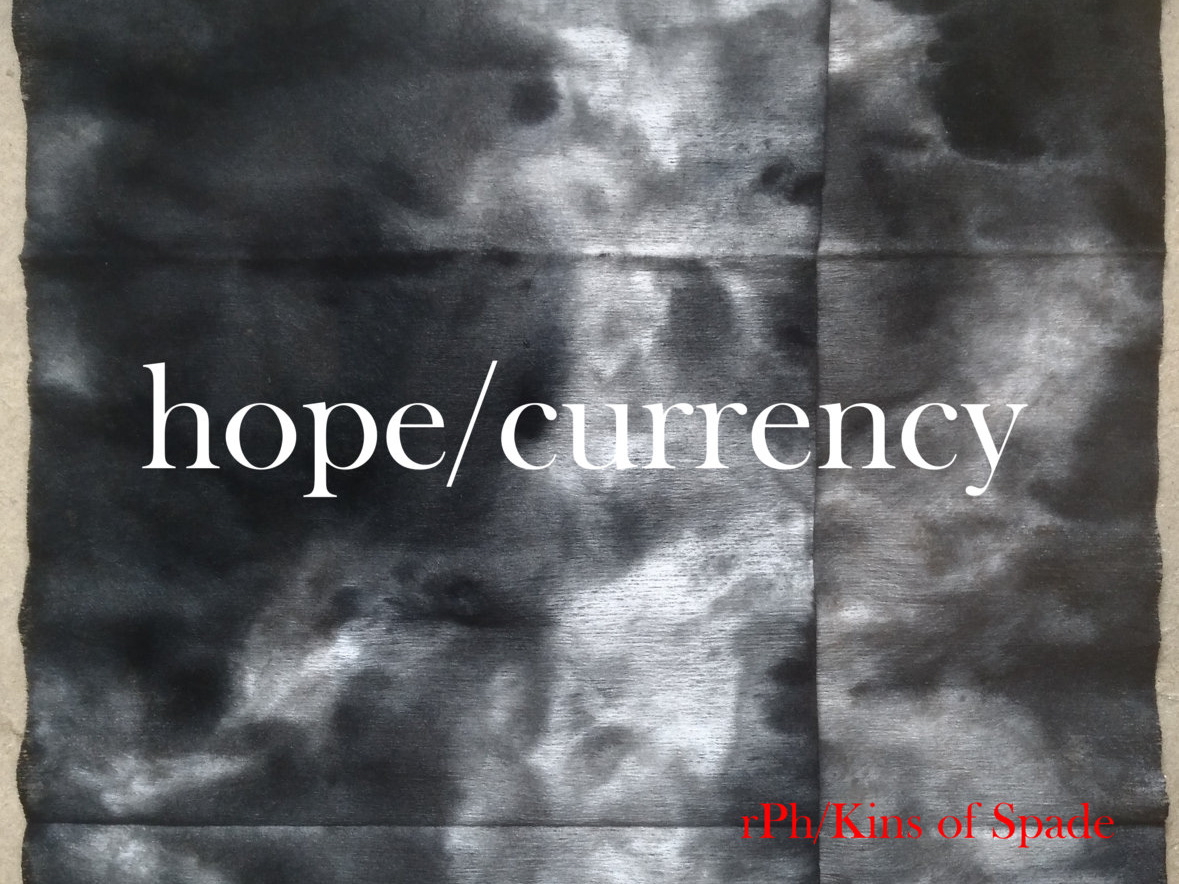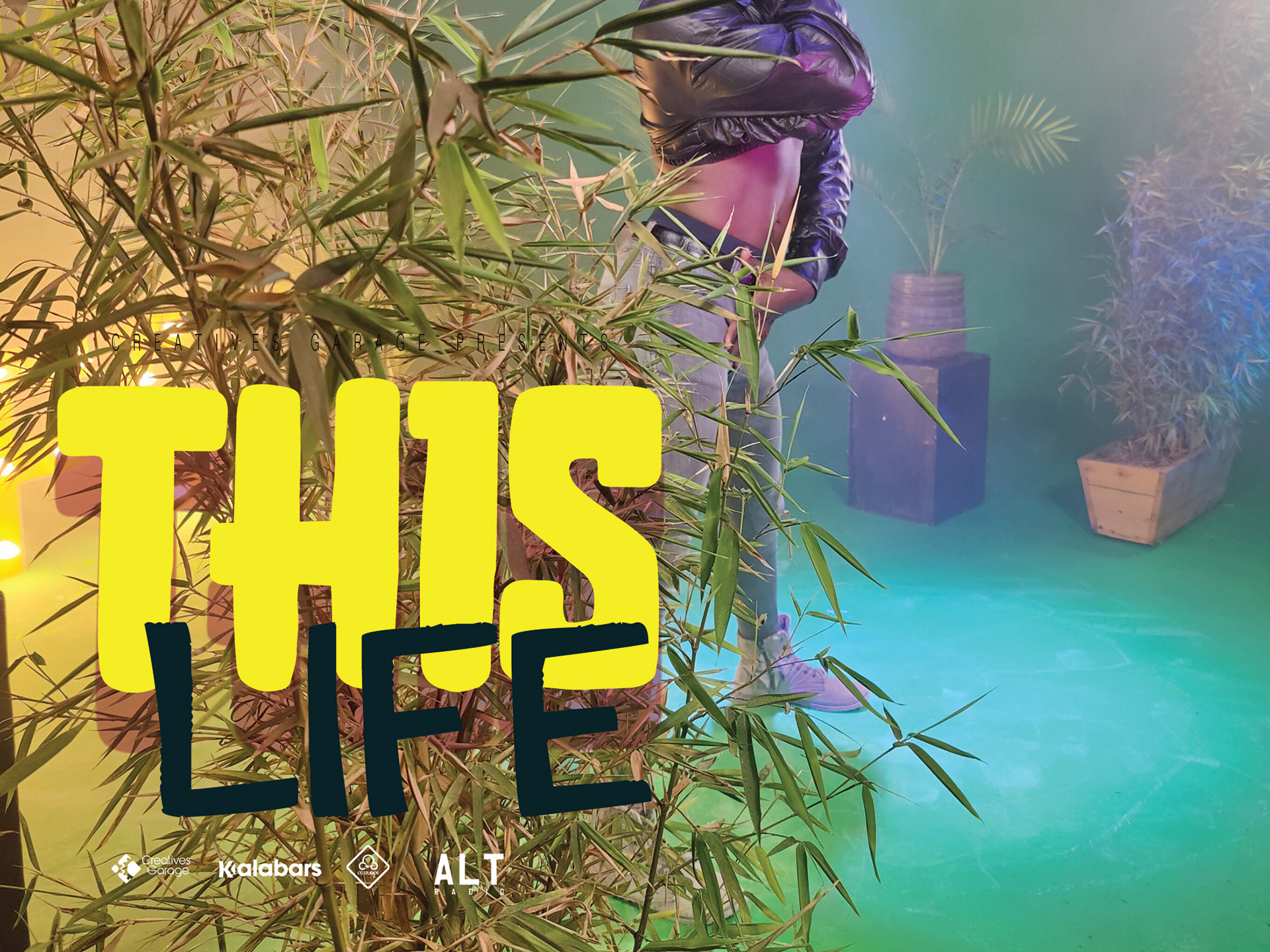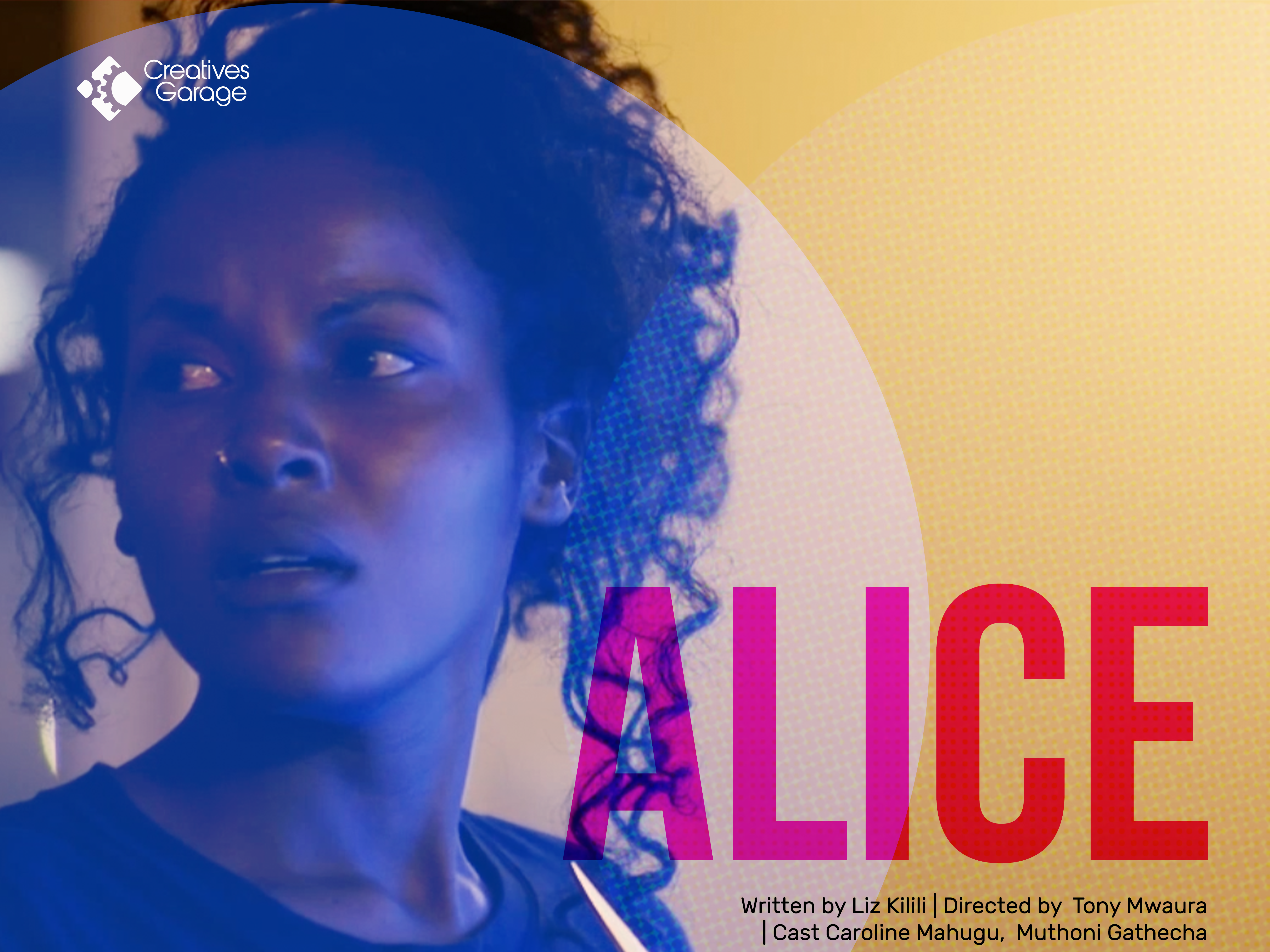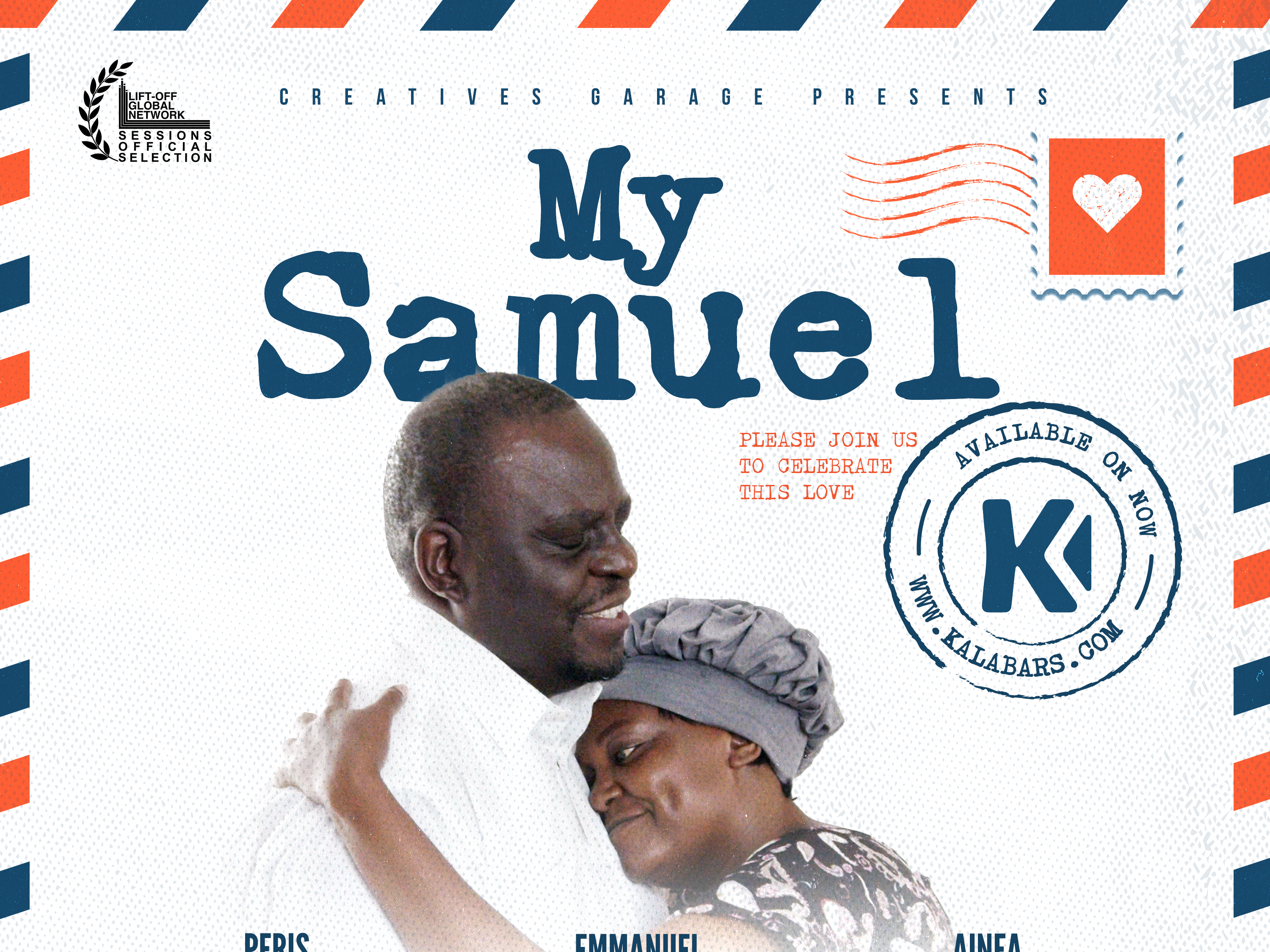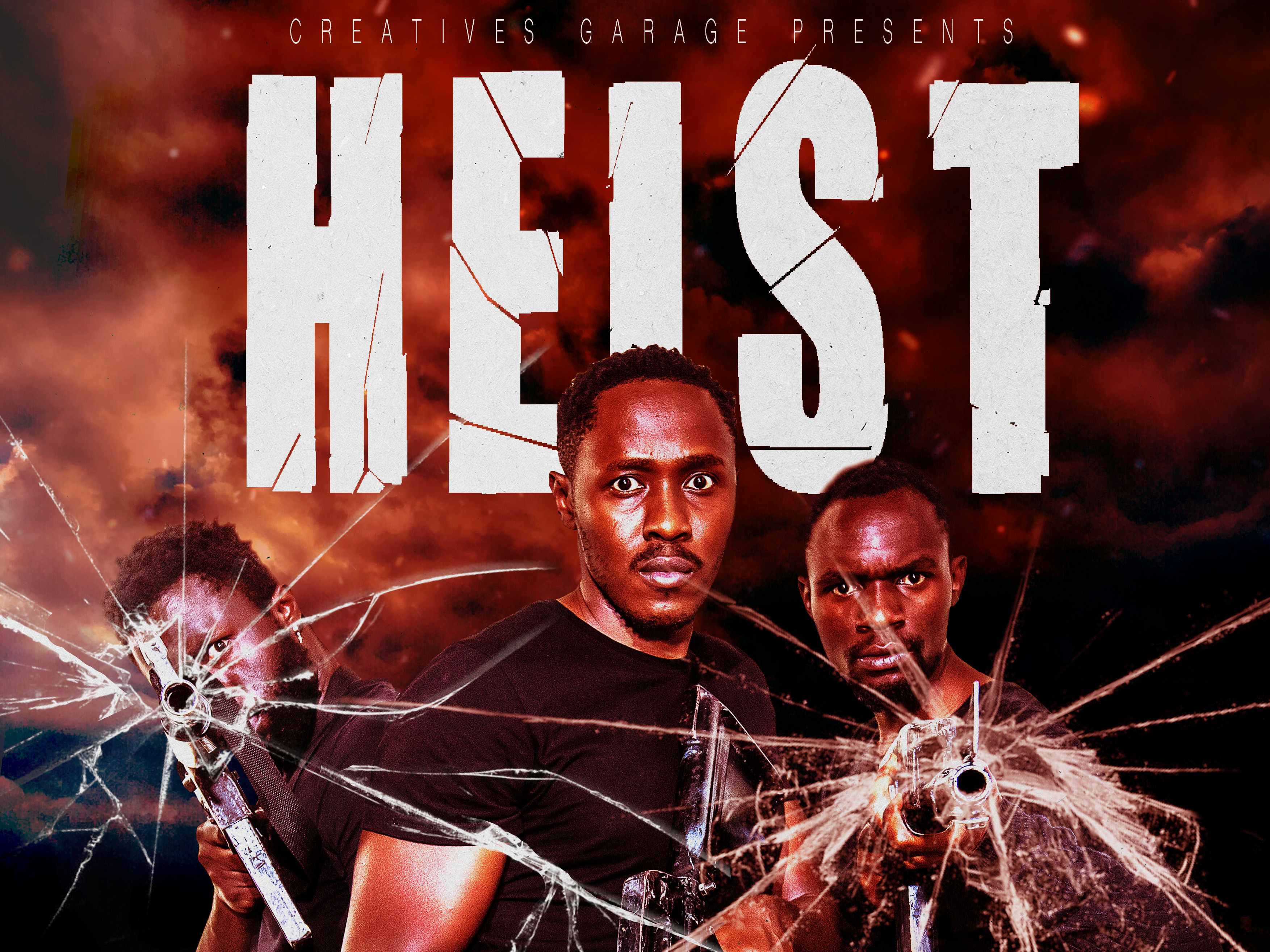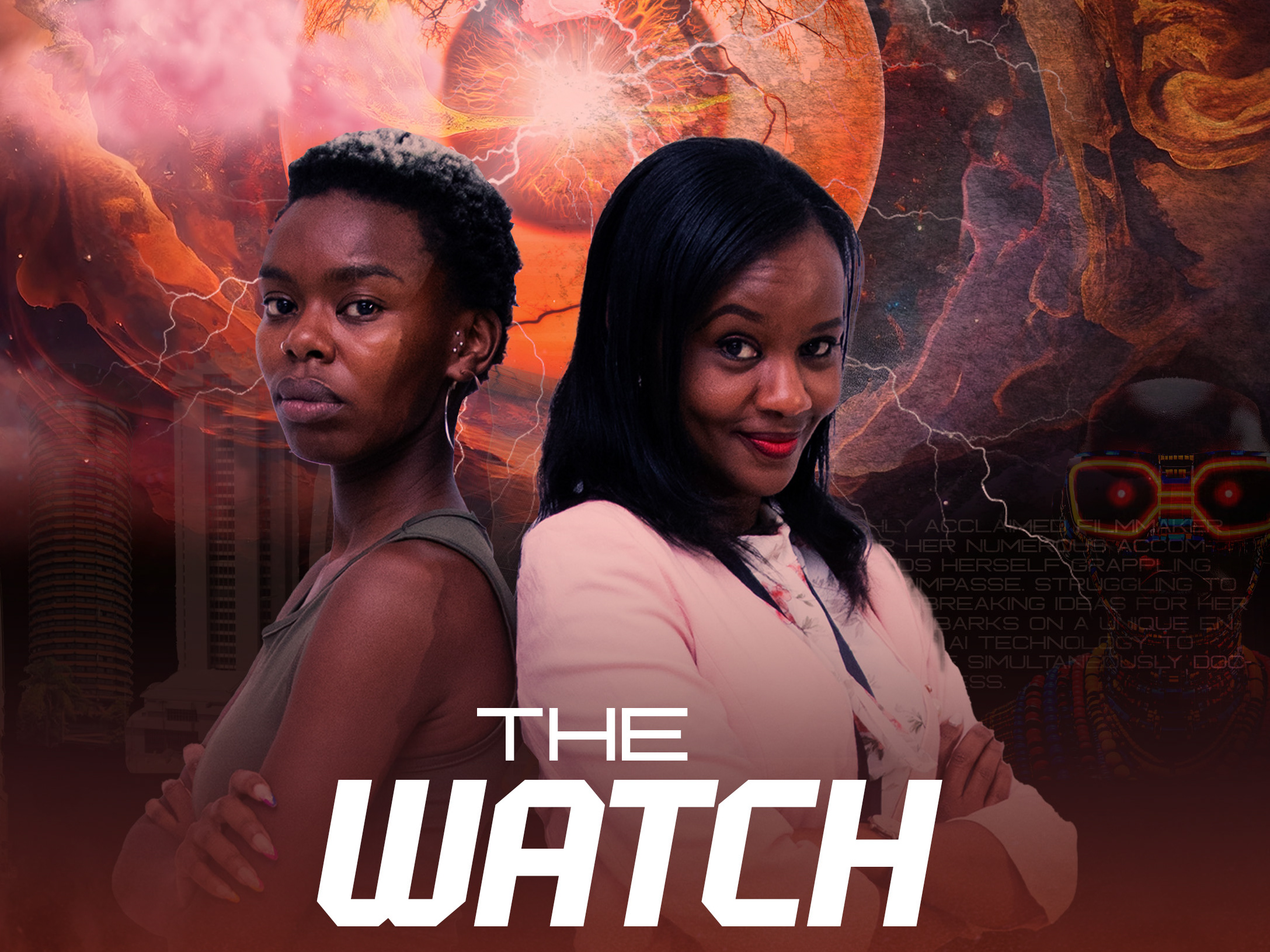When I first started writing Blooms in the Dark, never in a million years would I have imagined it would get here. It began as a podcast series of stories that needed to be told, and while fictional, I had borrowed nuggets from my lived experiences. The idea of turning this from a podcast to a play came after seeing the voice artists breathe life into the words and me wanting to show people the pain and triumph in these stories. So this year, I adapted the podcasts into a play and got these amazing humans who gave life to it. We staged Blooms in the Dark and received a standing ovation at both shows. The hard work, the sleepless nights, the tears, and the laughter were all worth it.
Blooms in the Dark started as a desperate attempt to meet some KPIs. I had this vision of creating something akin to the BBC radio plays I used to listen to in the car on the way to primary school. But what would it be about? I had no idea. As my producer relentlessly pursued me for scripts to meet the looming deadline, I decided to dig deep within myself for answers.
With each story I wrote, I dug deeper—into my sadness, my traumas, my annoyances, my hopes, my failures, fleeting promises, regrets, and every other trinket of memory that came to mind. This year (2024), I decided to take the stories I had written for the podcast and transform them into a play. Amid the fun and excitement of creating, it was a triggering nightmare every time an actor came in for rehearsal and performed, I was forced to relive those moments. By the time the play was done, I could feel the trauma in every single part of my body.
What most people don’t know is that the play was supposed to be my last fuck you to the fuckery that is life. But here I am, having written 10 more episodes, currently directing, and piecing them together. It breaks my heart to see how this body of work has affected my collaborators—how it has made them cry, triggered them, broken them, led to meltdowns, and caused anxiety attacks.
Blooms in the Dark podcast season 3 is scheduled for release in November 2024. It’s mostly sad, with little pockets of hope. It is the most raw work I have done in my life and also brought me the most hurt and anguish. I’ve thought of giving up on it many times, but I know it’s work that speaks for people like me—the odd ones, the crazy ones, the ones who chase love but see it slip away every time, the ones whose lives have been a series of fucks but still haven’t given up.
Allow me to take you through the creation journey.
The Podcast
We published our first podcast episode in February 2023. It took me about four days to write the entire season and maybe two weeks to edit all 10 episodes, completing season one. We produced season two in January 2024, which took me 3 days to write and 2 weeks to record and edit. In August 2024, we recorded the third season, which took me a week to write and 3 weeks to record. I believe season 3 took longer to record because the topics became heavier, and we needed more time to sit with the content. In total, we have 30 episodes in the whole series. Twenty have been published on Spotify, while the next ten will be released starting November 2024. We will have a launch event called "Songs to Soothe a Broken Heart," a title taken from one of the podcast episodes. The launch will include a reading and a musical performance by the talented Zaituni x Anariko. I can't wait to share this installment of the project!
The Play
The play was my debut in the theatre world. As a film director, I never thought there would be anything harder until I encountered theatre. I loved every bit of it, but let me just say, it brought with it a lot of loss (maybe you can pick up on the loss in Blooms Season 3). It was important for me to create it as a theatre performance because I wanted the audience to experience every emotion as the performers went through their journey.
Our biggest concern during rehearsals was safety and the possibility of being canceled. We were worried that if we managed to stage the play without being shut down, our cast might still have to fear for their lives afterward. This issue was a frequent topic during our circle time at rehearsals, where we discussed safety precautions in detail. As a precaution, we reached out to several organizations for support in case we faced arrest or worse. One organization provided us with a hotline and even offered some level of security during the performance. Additionally, Mental 360 supported us by offering free counseling sessions for the entire team.
The fear of being canceled was a constant concern, and we approached it in two ways: First, we ran the show for only one day, minimizing the time available for anyone to organize a cancellation. Second, we were deliberately vague about the play's content, describing it only as addressing inclusivity. Many audience members who approached me after the show admitted they bought tickets without fully knowing what to expect (sorry, but our safety had to come first!).
A few days before the show, as the reality of the performance set in, some cast and crew members suggested that I, as the writer and director, should have an exit plan and leave Kenya immediately after the show, fearing I might be the first to be arrested if the police intervened. Thankfully, none of our fears came true. The police never showed up, the cast and crew remained safe, and we weren't canceled.
In fact, we might just be the first queer play of this magnitude to ever be showcased in East Africa.
This was the main poster and the synopsis of the play.
BLOOMS IN THE DARK: A SHOW WITH THE BRIGHTEST OF STARS
PRESS RELEASE (for immediate release)
Kenya – June 2024 Nairobi, get ready for a show unlike anything you’ve ever seen in your life – and we’re not just saying that. Blooms In The Dark premieres in July for two shows only on July 13 at Braeside School – ok, so maybe it’s two shows that are unlike anything you’ve ever seen. Creatives Garage presents Blooms in the Dark, a lyrically theatrical adaptation of Thayù’s podcast of the same name. This anthology primarily features stories told by characters who live on the fringes of society—those who do not conform to societal norms regarding appearance, love, behaviour, and more…stories about your aunty being worried that you might end up as the crazy cat lady, and another about taking home KES13,369 after taxes, thanks to Zakayo (that’s crazy!)...or a story like that time your neighbours were throwing you knowing grins because of your squeaking 4x6 bed…tales of your pastor’s prayers being as loud as whatever he’s doing behind the toilet and slaps being served as plentifully as divorce papers! In other words, stories of real life.
The performance explores intricate themes such as sex, poor governance (cough! Finance Bill), religion, and traditional culture, exploring critical questions like what it means to be African, what inclusivity actually looks like, and who a good leader should be.
In these stories, the audience is confronted with the challenges and triumphs of individuals navigating their identities. Although fictional, these depictions lay bare the harsh realities and societal struggles of the people the characters represent, through acting, poetry, music, and dance. Blooms In The Dark narrates the quest for belonging—a universal pursuit where individuals find solace in religion, academics, home, or, within themselves.
This powerful performance is brought to life by an award-winning quartet of an all-female crew. Written by Thayù and directed by Thayù and Wanjiku Mwawuganga, it is produced by Hellen Masido, and stage managed by Chadota. The cast features an ensemble of acclaimed talents including Muthoni Gathecha, Riki Gathariki, Tana Gachoka, Koome Kinoti, Joseph Obel, Brian Njonge, Njeri Gakuo, Seise Bagbo, Rian Msani, and Faith Rose. The cast is supported by a 3 piece band featuring; Zaituni Wambui, Riki Gathariki and Anariko.
And here is my artist statement...
Belonging!
"Gaka ni Kahii kau?" These words—"Whose boy is this?"—marked my earliest memory of being referred to as a boy. I was a 5-year-old girl living in Nairobi. During the late 80s and early 90s, the women from Gitugi, which was my mother’s village, didn't seem to wear trousers (at least none that I met during my visits), so my habit of wearing trousers and shorts seemed rather unconventional. This prompted the old village men to question my identity, "Gaka ni Kahii kau?", during my visits to the village.
Growing up, I often felt caught between worlds. With siblings who were much older and seemingly cooler, I spent a lot of time alone, adopting an imaginary persona of a boy. I preferred playing with things the world considered "for boys”. One of my favorite games in this fantasy world was jumping in and out of my mother’s Suzuki, shouting "beba, beba" like the Matatu touts plying the Buru Buru route. In these imaginary worlds, I felt like I belonged, but in reality, my sense of belonging was as warped as my sense of humor.
In high school, I was branded a "tomboy" and expelled for being a lesbian —a joke— that didn’t align with my fickle reality. I was just trying to be a ‘normal’ teenager, liking boys. Chasing the elusive belonging by “doing what was expected”. This didn’t matter though because, I got into trouble with teachers who didn’t believe me (In Kenya they often don’t), with girls who thought we could have something (Hmm), and with my mother for getting into trouble with my teachers. I struggled with authority, identity, and my sense of belonging.
Religion became a strict compass during my post high school years, reinforcing a gender binary that left no space for exploration—I had to be into boys. Being a Christian and a 'tomboy' seemed incompatible, leading to internal conflict. Outside conflict too. The whispers of elders, my mother’s reprimands, my peers’ sneers, and church pressures left me feeling constrained, constantly pushing me towards what was deemed appropriate for my gender. I briefly conformed, trying to wear "girlie" tops, but my agency of belonging only grew.
When I got to thirty, I said FUCK society and began to embrace my identity. My journey wasn't straight (pun intended) forward, with moments of intense doubt and societal pressure. Despite the friction, I discovered warmth and belonging in the arms of women, feeling the support and acceptance I'd longed for. This newfound acceptance became the catalyst for my artistic expression — a way to explore the complexities of my journey.
In 2023-2024, I scripted, directed, and produced a 20-episode podcast series exploring queerness in Africa, depicting the topic through the lens of different characters and story lines. Each episode is a fictional narrative that draws from my lived experiences, with stories fleshed out through a blend of personal memories and fictionalized accounts. As the stories took shape, I saw the power of these narratives in addressing societal challenges, ranging from homophobia and transphobia to body dysphoria and the darker aspects of human experience, including death, rape, and suicide.
As a polymath creative, I adapted the Blooms in the Dark podcast into an immersive theatre production that brings these stories to life. The 1.5-hour stage performance takes audiences on a journey through the challenges and victories experienced by those exploring gender identity and sexual orientation against the backdrop of Kenyan society. It’s a tapestry of stories that mirrors the resilience and strength of the LGBTQ+ community while confronting the harsh realities we face.
It's crucial for me to share this body of work as an immersive theatre production because of the raw emotions I witnessed as the performers read the scripts—the tears we shed as the narrators brought the stories to life in the studio, and the genuine support from the production team as they rooted for the characters. These profound emotions deserve to be experienced in a tangible, visual context. By adapting these narratives into theatre, I can give them a face, a character, a movement, and a voice. Theatre provides the perfect platform to evoke the visceral feelings and connections that these stories inspire.
I combine music, poetry, contemporary dance, and theatre acting to create a multi-sensory experience that engages audiences on multiple levels. The musical elements heavily draw from Kikuyu language and culture, which has been both a source of oppression and a means of reclamation. Growing up in a single-parent home, I was labelled " not Kikuyu enough" due to my mixed heritage. In African culture, the child ideally belongs to the father. What this culture didn’t account for was growing up in a single-parent household where my primary caregiver was Kikuyu, so my influences were heavily shaped by this upbringing.
This language was used to put me down, reprimand me, and dissect my being, even as it was used to address me. Kikuyu was the language that first reminded me I was not a boy. The word "Kahii" or "Kihii" refers to an uncircumcised boy, which made me wonder: if I wasn't even a kihii, how could I be a man? "Wanja kihii" (meaning "tomboy") was the olive branch extended to me, but it also reminded me of what I wasn’t, even though I strongly felt like I was raised as a boy as I performed most tasks ideally reserved for boys. I use Kikuyu music and nuances to reclaim my sense of belonging.
Belonging?
A question I have struggled with throughout my life.
What is not lost on me and should be put into consideration is that the Kikuyu culture has always been matriarchal and even though the influence of colonisation and western religion has tried to erase that part of history, there are still nuggets of the original way of life spread through different naming practices and cultural practices. By embracing the Kikuyu language and culture, I also challenge the misconception that being queer is un-African.
I have been in pursuit of belonging. I did not find belonging in religion. I did not belong in school. I did not belong at home, and I did not feel like I belonged within myself. This body of work serves as a testament to the enduring human spirit, a reminder that the journey to belonging is always evolving. Blooms in the Dark is a journey through self-doubt, finding oneself, and reclaiming what is true. Through this work, I embrace my identity and encourage others to find their own path, because even in darkness, everything blooms.
The Music
The music was primarily Kikuyu music. We had two original pieces: Umenijaza Roho, written and produced by the amazing Riki Gathariki, and Pressure, by Zaituni and arranged by Anariko. The rest of the music was arranged by Anariko and sung by Zaituni and Riki. Our producer, Santuri, did an excellent job of recording all the music except for Pressure. Although the music was performed live, we needed the recordings for rehearsals. And because I am feeling a bit generous and you've made it this far, I will share the raw versions of the music here.
Muhiki
Muhiki is a song sung at weddings. The premise of the song is,
"This bride, where have you seen her?
God is good; he has made us see her."
The song is typically used to praise the beauty of the bride. We used it in Beatrice's story as she narrates how she got married because society dictated it, but she is now quite bored in her marriage. As a bisexual woman, she would like to open the marriage to include a woman.
Wawili kwa Wawili
We used this song in Alec and Larry's story (Butch 1 x Butch 2). The song loosely translates to:
"Two by two,
Two by two,
Everyone with theirs."
Two by two,
Everyone with theirs."
It is a couple's song, typically for heterosexual relationships. We took this and applied it to our two lesbian characters, Alec and Muringe, as they dance around the stage without a care in the world.
Muthabibu
Muthabibu is a gospel song sung in most PCEA churches during funerals. Growing up, I would ask my mother to sing this song for me because I completely fell in love with its lyrics. So, What better song could we have used to celebrate the lives lost by queer individuals due to a lack of acceptance? We used this song to honor their lives in death and to acknowledge that all lives matter.
Gichae
Gichae is another celebratory song that means
"let it shine; whatever it is, let it shine."
We used this song in Susan's—now Steve's—transitional story. In Kikuyu tradition, when boys become men, women will ululate five times. In the case of Steve's rite of passage into manhood, we used this song to celebrate the journey and culminated it with the ululations, cementing his total rebirth.
Ugiona
Ugiona is a celebratory song that translates to
"If you see me here, know that it is a good day."
We used this song for Wairimu, a 60-year-old lesbian woman celebrating her love with her longtime partner, who everyone thinks they’ve just been housemates all these years, while in fact, they have been partners since they were young. We also featured Karis, in his 20s, celebrating his love with his "silver fox daddy." Both characters talk about their love and how they’ve been together despite society being against same-sex relationships, and how their love has endured the test of time.
The Book
And lastly, for a gift that keeps giving, we are publishing Blooms in the Dark as a play. In Kenya, only a handful of plays have ever been published, so we decided to add to our country's catalog of published works. We believe that this bold piece (which we are still surprised hasn’t been banned) needs to exist in different formats and reach as many hands as possible.

